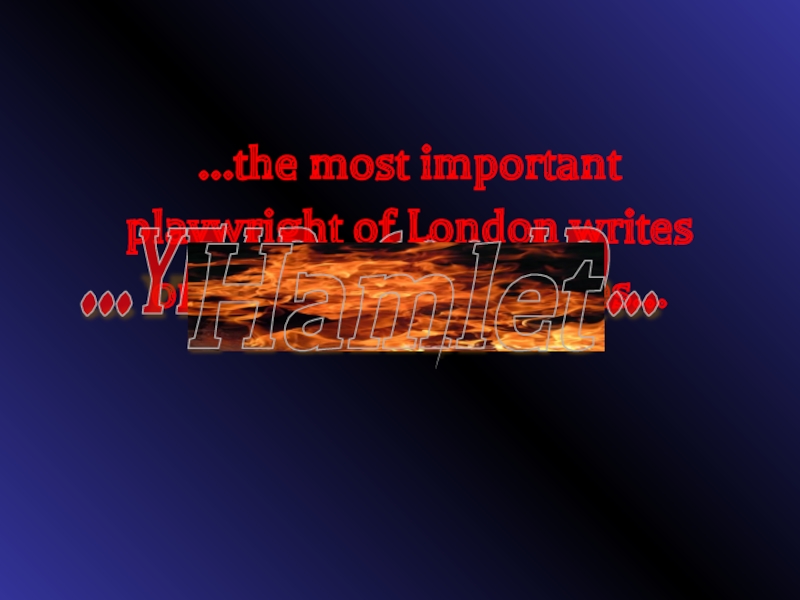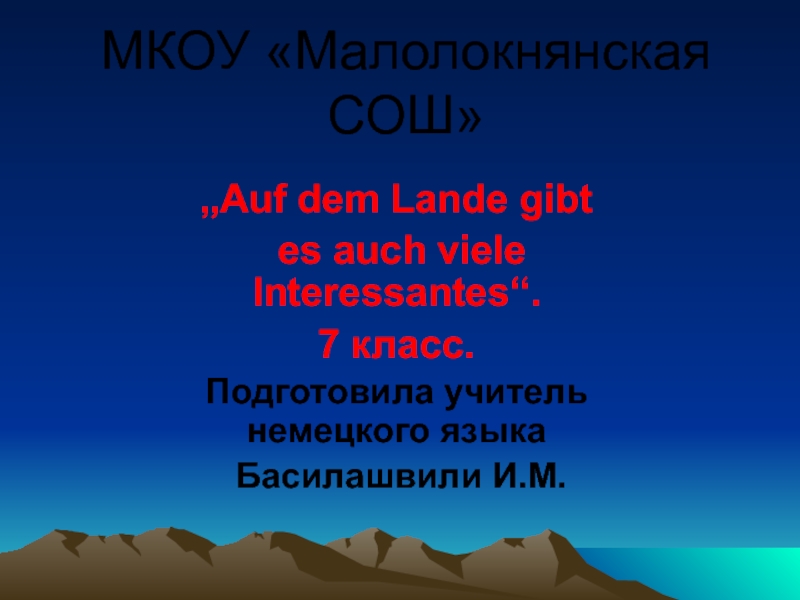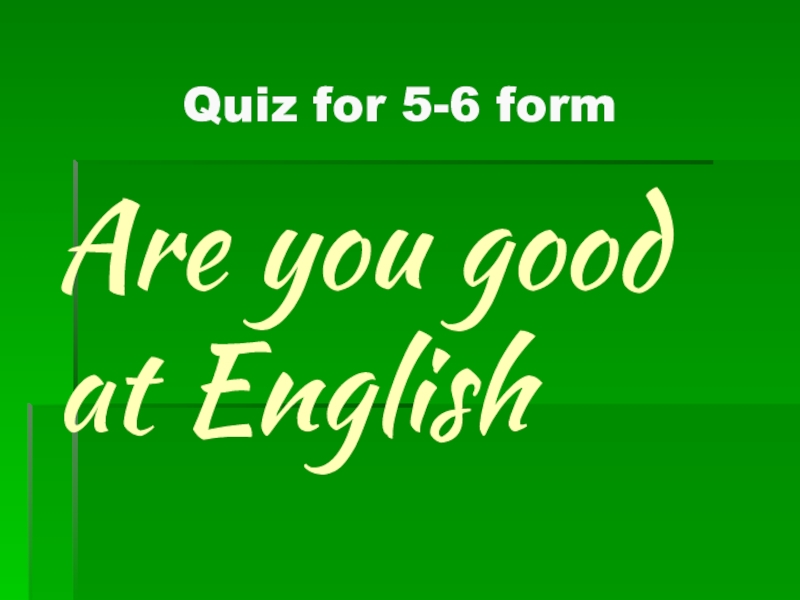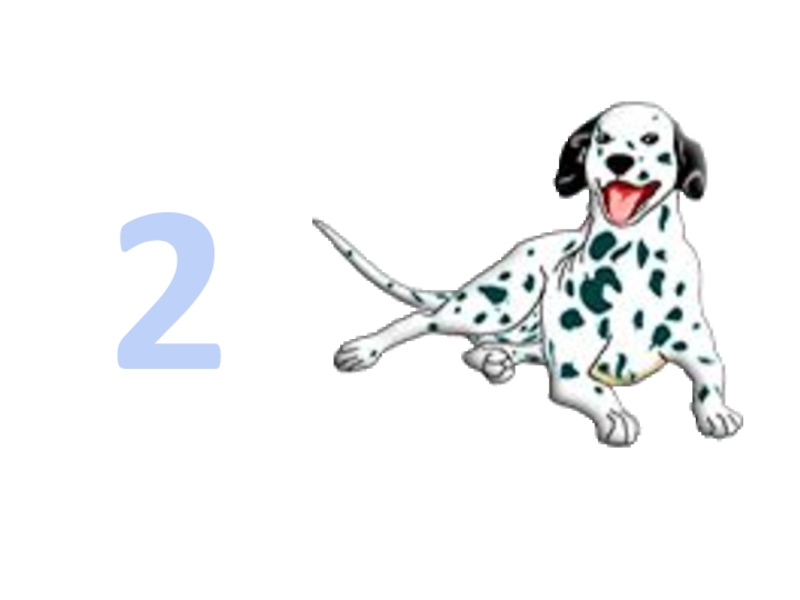- Главная
- Разное
- Образование
- Спорт
- Естествознание
- Природоведение
- Религиоведение
- Французский язык
- Черчение
- Английский язык
- Астрономия
- Алгебра
- Биология
- География
- Геометрия
- Детские презентации
- Информатика
- История
- Литература
- Математика
- Музыка
- МХК
- Немецкий язык
- ОБЖ
- Обществознание
- Окружающий мир
- Педагогика
- Русский язык
- Технология
- Физика
- Философия
- Химия
- Шаблоны, фоны, картинки для презентаций
- Экология
- Экономика
Презентация, доклад по английскому языку на тему Computerization in kz. Verb to have
Содержание
- 1. Презентация по английскому языку на тему Computerization in kz. Verb to have
- 2. Computerisation in kazakhstanInformation science deals with the
- 3. Verb TO BEVerb TO BE (TO BE
- 4. S i n g u l a
- 5. Affirmative form. Plural (Болымды форма. Көпше түрде)P
- 6. Negative form. Singular (Болымсыз форма. Жекеше түрде)I
- 7. Verb “To have”‘Have’ етістігі “бар” деген мағынада қолданылады
- 8. I Have I have a book.He(ер адам туралы)She(әйел адам
- 9. Сұраулы сөйлемдерде ‘Do’ немесе үшінші жақтың жеке түрі
- 10. Ал ‘have’ етістігінің болымсыз түрі сөйлемде ‘Do’, ‘Does’ көмекші етістіктеріне ‘not’ сөзі
- 11. Exercise 1http://www.englishmaven.org/HP6/To_Be_Exercise1.htmExercise 2 http://www.focus.olsztyn.pl/en-exercises-for-present-simple.html#.WFwNe1OLRdgExercise 3
- 12. http://www.englishmaven.org/HP6/To_Be_Final_Exam.htm“Today going to be very cold,” said the
- 13. To have exercises http://www.learnenglishfeelgood.com/english-verbs-tohave1.html
Computerisation in kazakhstanInformation science deals with the laws as well as ways and means of accumulating and processing information.The necessity to store and exchange information led to the development of speech and writing, printing and art, radio
Слайд 2Computerisation in kazakhstan
Information science deals with the laws as well as
ways and means of accumulating and processing information.
The necessity to store and exchange information led to the development of speech and writing, printing and art, radio and TV.
But the most important thing about utilization of information is the planning of purposeful activity aimed at solving problems or making decisions on the basis of the acquired information. And until recently this planning was performed by the human mind exclusively.
The invention of computers, calculating machines capable of processing information, cardinally changed the situation. The computer performs very simple actions, but its advantage is the speed it calculates at. In fact, the computer performs hundreds of thousands of operations per second. Moreover, having done one operation, it is capable of choosing further actions by itself.
But to utilize this operation, this miraculous advantage of the new machines one has to be able to synthesize an algorithm and translate it into a “language” that computers can understand. It became possible after the wonderful discovery that all logic actions of the living being can be described in the mathematic language — in the form of simple commands such as addition, deduction, comparison.
The necessity to store and exchange information led to the development of speech and writing, printing and art, radio and TV.
But the most important thing about utilization of information is the planning of purposeful activity aimed at solving problems or making decisions on the basis of the acquired information. And until recently this planning was performed by the human mind exclusively.
The invention of computers, calculating machines capable of processing information, cardinally changed the situation. The computer performs very simple actions, but its advantage is the speed it calculates at. In fact, the computer performs hundreds of thousands of operations per second. Moreover, having done one operation, it is capable of choosing further actions by itself.
But to utilize this operation, this miraculous advantage of the new machines one has to be able to synthesize an algorithm and translate it into a “language” that computers can understand. It became possible after the wonderful discovery that all logic actions of the living being can be described in the mathematic language — in the form of simple commands such as addition, deduction, comparison.
Слайд 3Verb TO BE
Verb TO BE (TO BE етістігі) – “болу”, “орналасу” дегенді
білдіріп, бір іс-әрекеттің болуын, орналасуын білдіреді. Мысалы:
I am 18 years old – Мен он сегіз жастамын. Біреудің жасының он сегізде болғанын білдіріп тұр.
He is in Almaty – Ол Алматыда. Оның Алматыда орналасқанын білдіріп тұр.
Askar is from Kazakhstan – Асқар Қазақстан елінен. Адамның қай жерлік екенін, қандай да бір жерден болуын білдіріп тұр.
She is a student – Ол (қыз бала) студент. Оның студент екенін білдіреді.
Слайд 4S i n g u l a r I (Мен) am a
pupil – Мен оқушымын. I am = I’m
You (Сен) are a student – Сен студентсің. You are = You’re
He (Ол /ер кісі/) is a teacher – Ол(ұл) мұғалім. He is = He’s
She (Ол /әйел кісі/) is a doctor – Ол(қыз) дәрігер. She is = She’s
It (Ол /жаны жоқ зат/) is a table – Ол(зат) үстел. It is = It’s
Слайд 5Affirmative form. Plural (Болымды форма. Көпше түрде)
P l u r a
l
We (Біз/Біздер) are pupils – Біз оқушымыз. We’re pupils
You (Сендер/Сіздер) are students – Сендер студентсіңдер. You’re students
They (Олар) are teachers – Олар мұғалімдер. They’re teachers
Көпше түрде де жекеше түрдегі сияқты бірінші бастауыштар we, you, they қолданылады. Олардан соң үшеуіне ортақ are көмекші етістігі. Ал сөйлем соңында толықтауыштар қолданылады. Олар pupils, students, teachers болып, көпше түрде жекеше түрдегідей алдына артикль қойылмайды және соңына көпше түрді білдіретін –s жалғауы жалғанады.
Слайд 6Negative form. Singular (Болымсыз форма. Жекеше түрде)
I am not a pupil
– Мен оқушы емеспін. I’m not
You are not a student – Сен студент емессің. You’re not немесе You aren’t
He is not a teacher – Ол(ер) мұғалім емес. He's not немесе He isn't
She is not a teacher – Ол(әйел) мұғалім емес. She's not немесе She isn't
It is not a table – Ол(зат) үстел емес. It's not немесе It isn't
Болымсыз формада көмекші етістіктен соң, not болымсыз шылауы жалғанып, қазақ тіліне емес деп аударылады. Тағы да соңғы бағанада not шылауымен көмекші етістіктің қысқартылып жасалуын көруге болады.
Слайд 7Verb “To have”
‘Have’ етістігі “бар” деген мағынада қолданылады да, баршылықты білдіреді.
Үшінші
жақтың жеке түрінде ‘have’ етістігінің формасы ‘has’ етістігіне айналады. Қалған жақтар үшін ‘have’болып қалады.
Төмендегі мына кестеге назар аударайық:
Төмендегі мына кестеге назар аударайық:
Слайд 8I Have I have a book.
He(ер адам туралы)
She(әйел адам туралы)
It (жансыз зат есімдер туралы)
You HaveYou
have a book.
WeWe have a book.
TheyThey have a book
WeWe have a book.
TheyThey have a book
Слайд 9 Сұраулы сөйлемдерде ‘Do’ немесе үшінші жақтың жеке түрі үшін ‘Does’ көмекші етістіктерін қолданамыз. Ал ‘have’
етістігінің өзі бір формасында қалады. Мыслдарға қарайық:
Do I have a book? – Менің кітабым бар ма?
Does he have a book? – Оның кітабы бар ма?
Does she have a book? – Оның кітабы бар ма?
Do you have a book? – Сенің кітабың бар ма?
Do we have a book? – Біздің кітабымыз бар ма?
Do they have a book? – Олрадың кітабы бар ма?
Do I have a book? – Менің кітабым бар ма?
Does he have a book? – Оның кітабы бар ма?
Does she have a book? – Оның кітабы бар ма?
Do you have a book? – Сенің кітабың бар ма?
Do we have a book? – Біздің кітабымыз бар ма?
Do they have a book? – Олрадың кітабы бар ма?
Слайд 10Ал ‘have’ етістігінің болымсыз түрі сөйлемде ‘Do’, ‘Does’ көмекші етістіктеріне ‘not’ сөзі қосылу арқылы жасалынады:
I do not
have a book – Менің кітабым жоқ.
He does not have a book – Оның кітабы жоқ.
She does not have a book – Оның кітабы жоқ.
You do not have a book – Сенің кітабың жоқ.
We do not have a book – Біздің кітабымыз жоқ.
They do not have a book – Олрадың кітабы жоқ.
He does not have a book – Оның кітабы жоқ.
She does not have a book – Оның кітабы жоқ.
You do not have a book – Сенің кітабың жоқ.
We do not have a book – Біздің кітабымыз жоқ.
They do not have a book – Олрадың кітабы жоқ.
Слайд 11Exercise 1
http://www.englishmaven.org/HP6/To_Be_Exercise1.htm
Exercise 2
http://www.focus.olsztyn.pl/en-exercises-for-present-simple.html#.WFwNe1OLRdg
Exercise 3
Слайд 12http://www.englishmaven.org/HP6/To_Be_Final_Exam.htm
“Today going to be very cold,” said the weather man on the
TV.
“You need to wear very warm clothes.”
He talking in a very low voice. He very serious. "You need to be careful out on the roads," he said. "Two car accidents reported this morning."
Dr. Hayden turned off the T.V. He put on the warmest clothes he had. He put on a sweater, jacket, gloves, socks, boots, and a hat. Then, he went outside. It snowing and the wind blowing. “Wow, it very cold outside,” said Dr. Hayden. The weather man was right! He got into his car. He turned the key. The engine came to life. He turned up the heat. He very cold.
There a lot of traffic on the road. The cars going slow. The doctor did not understand why everybody going so slow. “Why all the cars going so slow today?” he said. "They going as fast as usual. Usually they go faster."


















